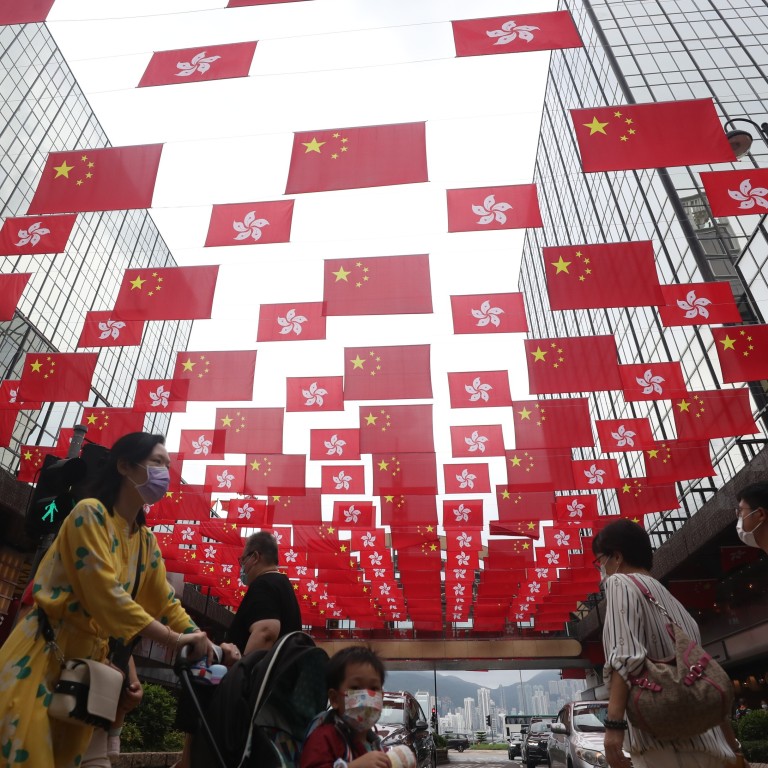
Tense atmosphere as Hong Kong prepares to mark 24th anniversary of return to Chinese sovereignty
- Traditional July 1 rallies banned by police citing pandemic restrictions while authorities have also warned people against taking part in illegal gatherings
- City also celebrates 100th anniversary of founding of Chinese Communist Party on Thursday
The Security Bureau on Wednesday issued a statement warning against unauthorised gatherings and “the risk of local terrorism” – referring to the arrests a day earlier of two men in connection with the seizure of bomb-making materials – while also noting that violent crimes had dropped sharply because of the national security law.
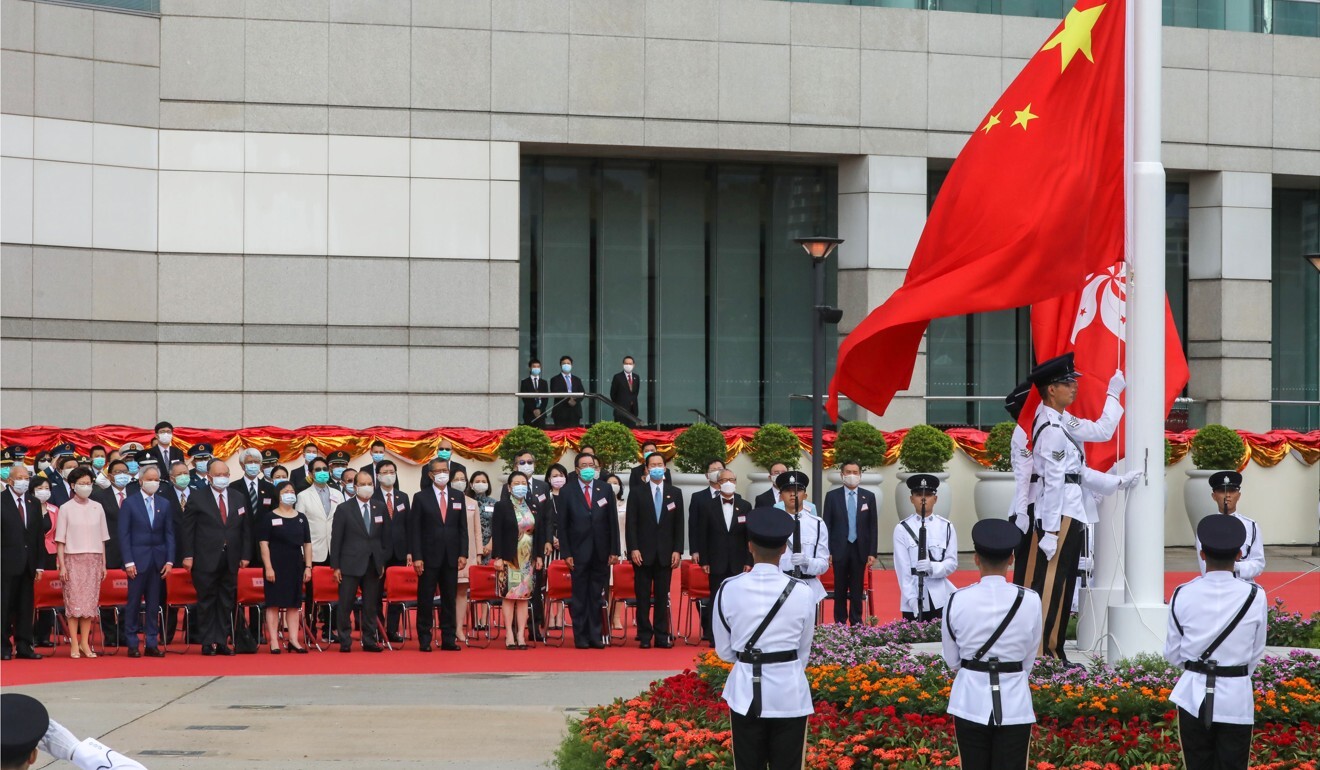
In an interview with state broadcaster CCTV, newly promoted Chief Secretary John Lee Ka-chiu said the law had helped Hong Kong to restore peace, but called for continued vigilance.
“External forces are still waiting for chances to cause trouble, especially when many countries want to attack our nation when it is getting strong peacefully,” he said. “We need to be proactive in promoting national security education, and I am very optimistic about this.”
The local government followed up with a strong statement objecting to “the grossly misleading and incorrect remarks by some individuals, organisations and countries” against the national security law, saying they were “purposely degrading the positive effect that the law has on Hong Kong”.
National security police ‘have list of people to be arrested if they try to flee’
Former Hong Kong leader Tung Chee-hwa told the state-run China News Service that the Communist Party had transformed China from a poor country to a harmonious and strong nation.
Tung called on Hong Kong youth to understand more about China so that they could become proud participants and contributors to the nation’s development.
The Hong Kong Research Association, a pro-Beijing group, earlier this week cited a new survey in which 60 per cent of respondents said the national security law had not undermined their rights or freedoms.
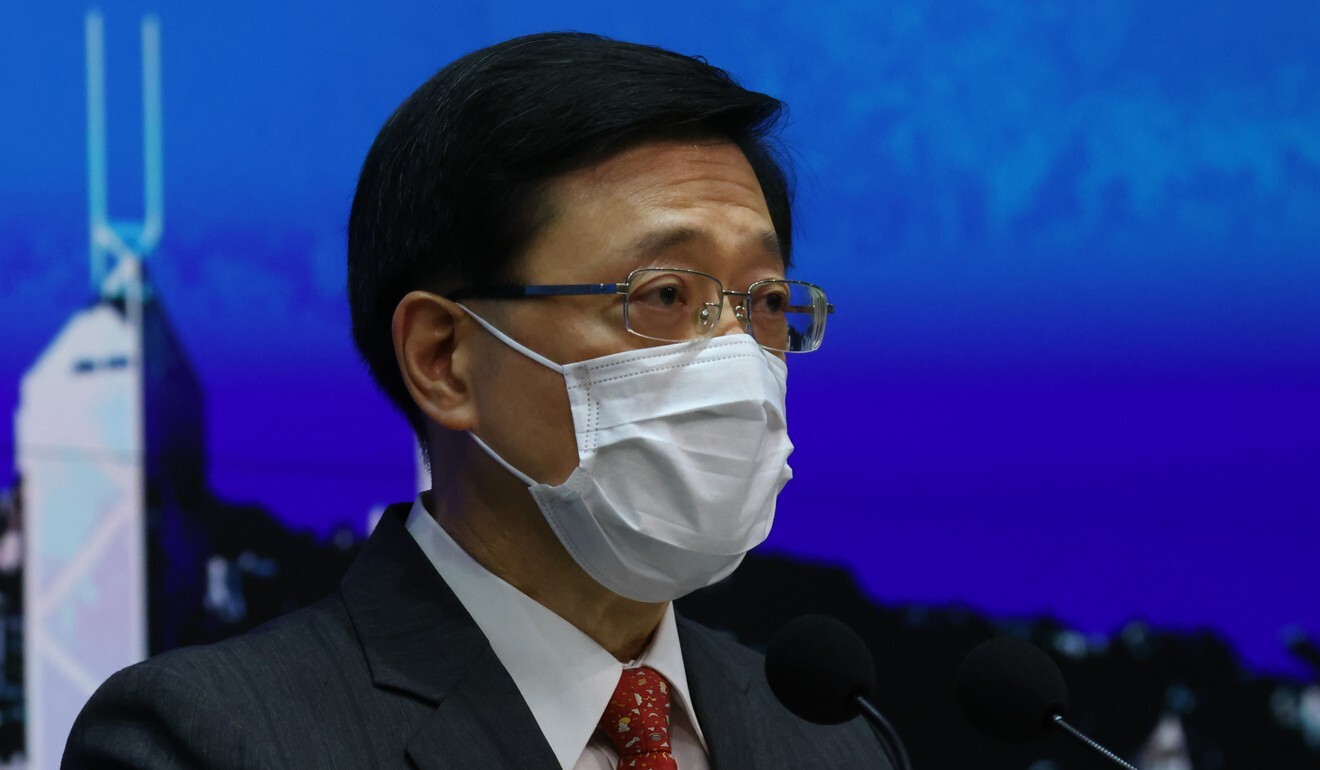
The poll of 1,247 residents from June 10-22 found 47 per cent agreeing that they felt safer and more secure after the enactment of the law.
The vice-chairwoman of the Alliance in Support of Patriotic Democratic Movements of China was also charged with incitement over a previous arrest related to a banned mass vigil on the June 4 anniversary of the Tiananmen Square crackdown.
Hong Kong’s new No 2 official to take up reins as Lam heads to Beijing
It marks the first time in eight months that Xi and Lam will be attending the same public event.
It also marks the first time in 24 years that Hong Kong’s leader will not be in the city to preside over handover anniversary celebrations – the new chief secretary will officiate at the official flag-raising ceremony and reception in the morning.
The 24th anniversary of Hong Kong’s handover also comes a day after the first anniversary of Beijing’s imposition of the national security law, and marks the first time since 2003 without the usual mass protest.
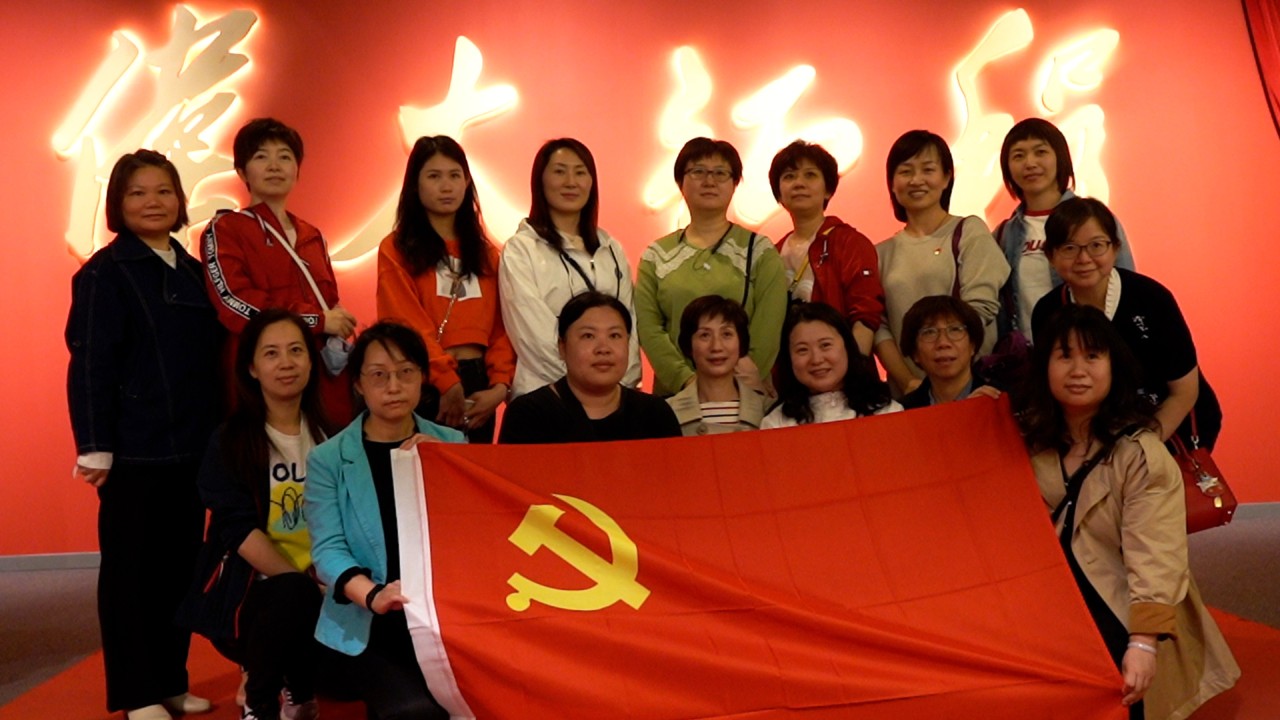
03:45
Exhibitions and history lessons: China prepares to mark 100 years of the Communist Party
The US consulate posted a message on Facebook saying it was “bearing witness” to and tracking 114 arrests for alleged national security law offences, including “politically motivated” ones.
But a spokesman for the Chinese foreign ministry’s Hong Kong office accused the consulate of “smearing”. “The US has abused the concept of national security … It is not qualified to comment on the Hong Kong security law,” the spokesman said.
Thousands quit Hong Kong, saying it’s no longer the home they knew
“Hong Kong’s epidemic and political situation have remained stable in the last few months. In the past year, people have also had a better understanding about ‘one country, two systems’,” he said, referring to the city’s governing policy.
But opposition activists warned that as Hong Kong faced a range of deep-seated socio-economic problems such as poverty, top officials and politicians must tackle them as soon as possible.
Raphael Wong Ho-ming, chairman of the League of Social Democrats, said this year’s handover anniversary was not a day for celebrations.
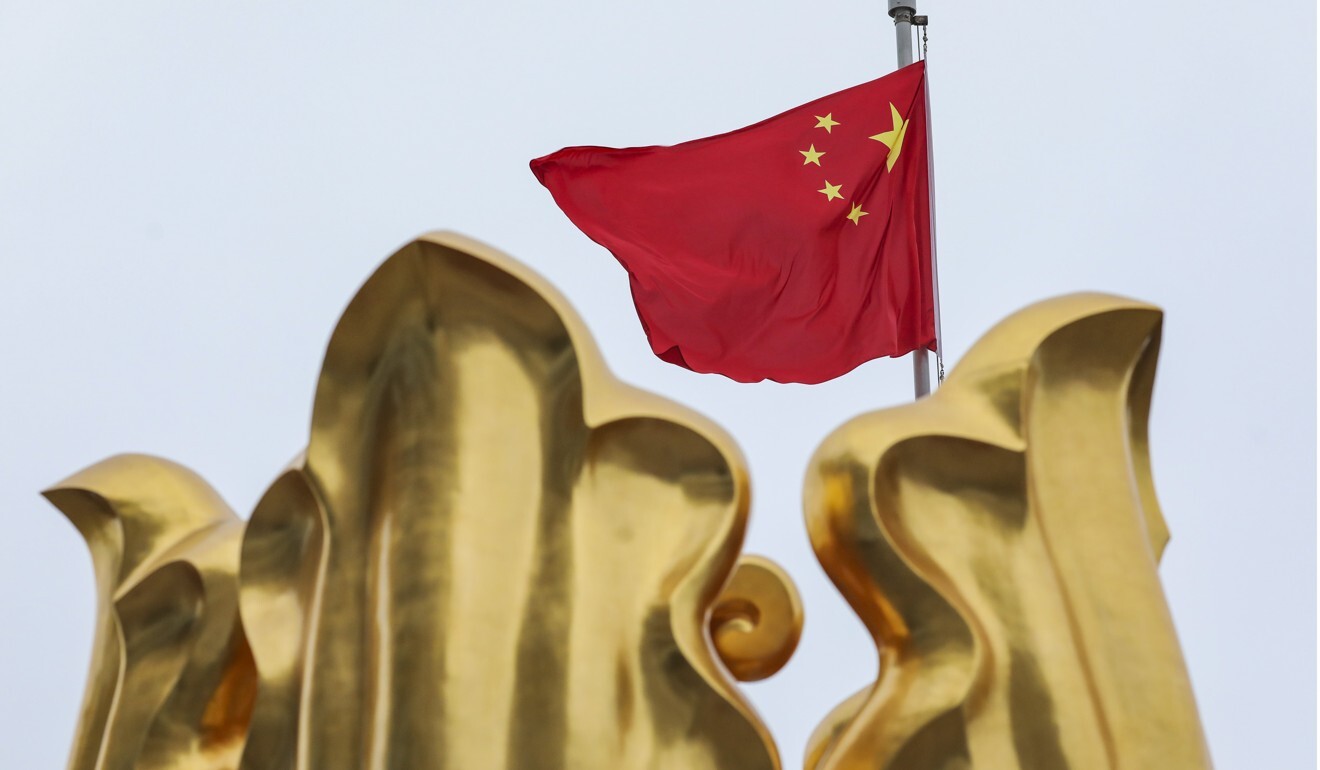
“I can foresee that under a new electoral system, Hong Kong’s poverty issue and other economic and political problems will only get worse,” he said.
A source said the chief secretary’s keynote speech on Thursday was expected to highlight Article 1 of the national constitution specifying that “leadership by the Communist Party of China is the defining feature of socialism with Chinese characteristics”.
Some of Hong Kong’s celebrations began on Wednesday. A pro-Beijing youth committee organised a variety show at the Hong Kong Coliseum, and senior local and mainland officials in the city were among the guests.

